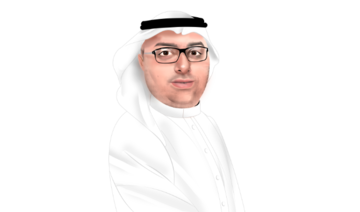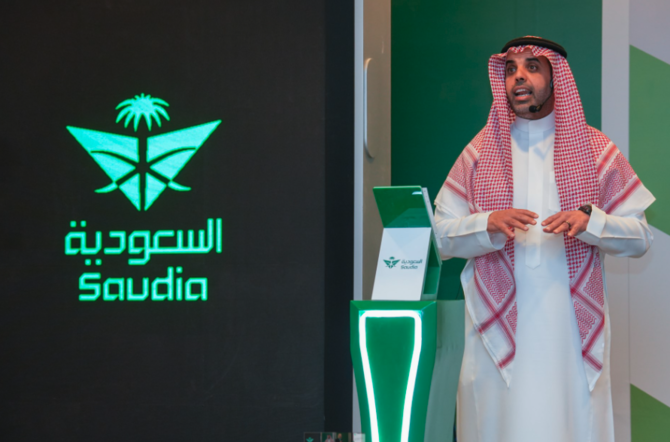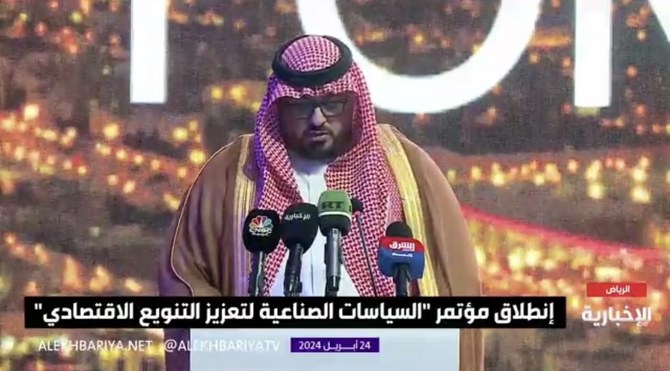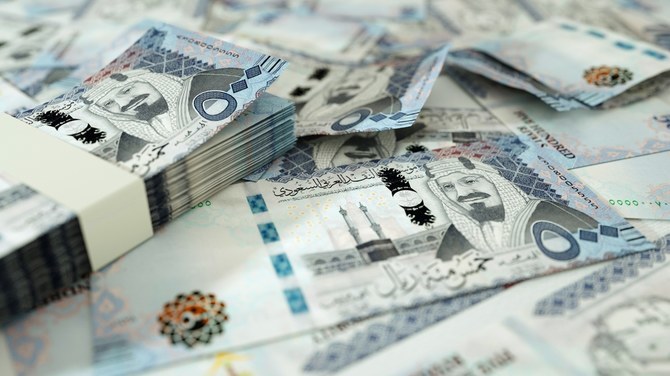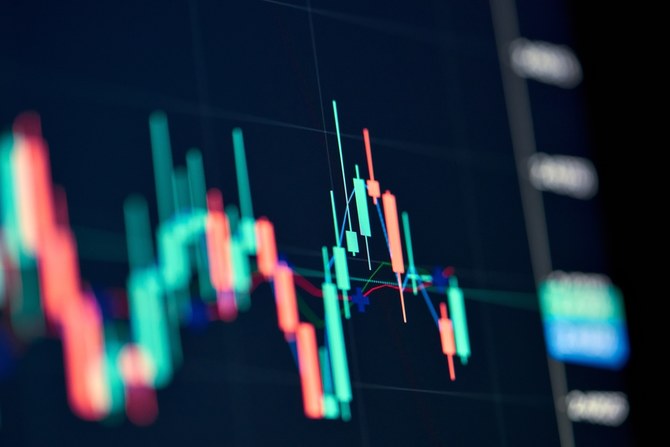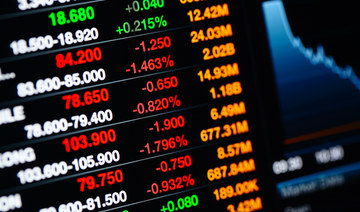DUBAI: Yousef Al-Benyan is one of the leading captains of Saudi Arabian industry. As vice president and chief executive officer of the Saudi Basic Industries Corporation, he has been instrumental in leading the Kingdom’s drive into petrochemicals, which has put the country in the top echelons of the global chemicals industry.
For the past year, he has been involved in the biggest corporate deal in the Kingdom's history — the multi-billion-dollar acquisition of Sabic by Saudi Aramco. The deal — expected to be completed soon — paved the way for the listing of the world’s biggest oil company on the Tadawul stock exchange in the largest initial public offering in history last December.
Such roles at the head of Saudi business and industry, along with his global experience and familiarity, have made him the natural appointee as chairman of the Business Twenty (B20). The B20 is the G20 unit responsible for the global business community and is involved in the private corporate-sector preparations for the summit of government leaders scheduled to take place in Riyadh later this year.
Al-Benyan spoke to Arab News about the ambitions and challenges of the global business community at this time of unprecedented turmoil brought on by the coronavirus disease (COVID-19) pandemic, which has transformed the landscape beyond recognition in the space of a few months.
“COVID-19 represents a turning point in business history, the creation of a new normal,” Al-Benyan said.
“Globally, we are seeing businesses respond to the pandemic in a wide variety of ways, ranging from complete shutdowns, to downsizing and lay-offs, to transforming their business models to contribute to resolving the health crisis. We are collectively witnessing the rise of a new normal,” he added.
Recently, he announced the B20 COVID-19 Initiative, which taps into the expertise of the global business community in an effort to mitigate the effects of the economic crisis caused the pandemic.
“We have worked with our taskforces and action councils to call for a global coordinated response, and we will be issuing an interim report that aims to address economic recovery but also prepare for future crises,” he said.
The policy recommendations from those studies will be presented to the G20 presidency ahead of the November summit.
“We are looking across several sectors and into issues that impact the global business community and that require strong government partnership and collaboration.
“From improving digital infrastructure, to reducing carbon emissions, to strengthening global trade and helping close the gender gap in businesses, we are focused on turning today’s challenges into tomorrow’s opportunities,” he said.
In the pandemic era, the deliberations of the B20 have been conducted in dramatically changed format. Instead of face-to-face meetings, Al-Benyan has chaired a series of virtual gatherings of business leaders from his headquarters in Riyadh.
“We have already either hosted or participated in a number of virtual meetings and events that have been successful in bringing together some of the best minds in global business. At times like these, we must be able to demonstrate action through collaboration, and our inability to sit in the same room should not limit the potential of businesses,” he said.
“With gatherings and travel restrictions in place, our experience with conducting virtual meetings on digital platforms is a reminder of the importance of strengthening our global digital infrastructure as we press on to achieve business continuity. The health crisis has served to highlight the importance of digital technologies in containing the pandemic as well as minimizing the social and economic impact,” Al Benyan added.
BIO
BORN: Riyadh, Saudi Arabia
EDUCATION:
- Bachelor’s degree in economics
- Master’s degree in industrial management
CAREER:
- (Sabic since 1987)
- Business development executive
- Corporate communications
- Operations manager, Stamford, Connecticut, US
- Commercial manager for the Americas, Houston, Texas, US
- General manager, SABIC Asia
- Vice president of Corporate Finance and Chief Financial Officer.
- Current: Vice chairman and chief executive officer.
The pandemic crisis has shaken the global economy to its core, and for Saudi Arabia the effect has been magnified by the steep fall in oil prices as a result of wholesale lockdowns of economic activity around the world. The Kingdom has responded with a series of economic, financial and health measures that some analysts believe amount to a watershed moment in its development.
“The initial short-term outlook for the global economy looks challenging, with both growth estimates and consumer confidence dropping as a result of the virus. With lessons learned from the MERS outbreak back in 2012, the Saudi government has moved fast and taken the necessary actions, extending much-needed support to the business community during this outbreak.
“Addressing the pandemic head-on, the government has announced a series of multi-billion-riyal financial assistance programs to extend a lifeline to the private sector, which has been negatively impacted by the virus,” Al-Benyan said, speaking before the recent increase in value-added tax and reduction in the cost of living allowances, which were announced last week.
“We believe this crisis will lead our economic transformation as Saudi Arabia continues to diversify its economy. The government has already mobilized its resources to future-proof its economy, investing in the private sector to support jobs and industries,” Al-Benyan said.
“Our efforts will hopefully be a signal to the world that we can emerge out of this crisis stronger than before with robust economies and fundamentals in place. B20 Saudi Arabia will continue to work with the G20 to accelerate collaboration and encourage solutions and innovation to chart a path forward for recovery and sustained growth,” he added.
“We understand that business continuity is vital and so are the health and safety of employees. Business are monitoring the situation closely and pursuing measures that work simultaneously with the government’s directives and regulations. It is important to note that in many cases, resuming business will be in an entirely new normal,” Al-Benyan said.
Like many business leaders, he is reluctant to put a date on when the new normal will begin — when business and the economy will re-open.
Whatever shape the new normal takes, Al-Benyan and the rest of the B20 team have a full agenda for the rest of the year leading up to the summit. That build-up comes at a time of increasing tensions within the international community, with the stand-off between the US and China moving into an apparently more confrontational phase under the impact of the pandemic.
Al-Benyan believes that leaders should learn from the global response from business.
“We have seen businesses around the globe mobilize on a massive scale, and we call upon political leaders to take similar action, as it is only through global cooperation that we can contain the potential human and economic toll of COVID-19. As B20 Saudi Arabia, we will make relentless efforts to ensure the business community’s voice is heard.
“We have a busy few months ahead as we work on finalizing our action-oriented and impactful policy recommendations for each taskforce and action council. Once finalized and agreed upon, the recommendations will be delivered in an official communiqué to the G20 leaders during the annual B20 summit in October in Riyadh,” he said.
The B20 is in the process of developing specific recommendations on business recovery and preparation for future crises, with a report expected to be delivered to the presidency next month.
One big question on Al-Benyan’s mind, which also concerns virtually everyone on the G20 team in the Kingdom, is whether the summit in November will go ahead as a physical event. Saudi Arabia has already hosted a virtual meeting of the G20 leaders, which was regarded as a success, as well as a crucial meeting of energy ministers from the leading countries credited with helping ease strains in global oil markets.
But a physical G20 summit would be a milestone for the Kingdom — the first time it has been held in an Arab country — and an opportunity to showcase the reforms under way for the past few years. Will it go ahead?
“Like every citizen of Saudi Arabia, we look forward to hosting a physical event and welcoming global leaders to the Kingdom. That said, any decision depends on external factors and a situation that continues to evolve. While we prepare for every eventuality, we will be following government guidelines and global best practices, discussing with all member states and stakeholders before deciding on the final event format,” Al-Banyan said.





